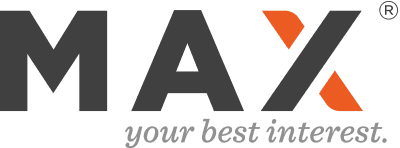
When Max launched in 2014 as a way to help individual investors keep cash safe while earning higher yield, few paid much attention. Due to the Fed’s many rate cuts during the financial crisis, people had become accustomed to the idea that cash was a zero-return asset class, and few gave it much thought.
Fast forward to 2020 and everyone seems to be focused on cash and how to earn more. Some of the most influential journalists have picked up the cause, including Jason Zweig at The Wall Street Journal and Jim Cramer on Mad Money, urging clients not to ignore what they could be earning on cash.
Everyone seems to be getting in on the game now, trying to convince you to move your funds to a
Industry experts Bob Veres and Joel Bruckenstein, who publish an annual report on financial advisor technology called the T3/Inside Information Advisor Software Survey, note that the most popular solution among independent financial advisors for helping clients manage the cash they hold outside of the brokerage account is a solution called MaxMyInterest, or “Max” for short.
Why Max is a smart choice for a client’s held-away cash
There are good reasons why Max has become so popular with financial advisors. Max was built out of the simple desire to help people, so a lot of care was put into designing a service that delivers the best yields to clients while being free from any conflicts of interest.
Max works with financial advisors from all types of advisory firms, from independent RIAs to hybrid firms managing trillions of dollars of client assets. Max isn’t a broker or custodian; it simply offers software that acts much like an air traffic controller for cash, helping individuals earn more on cash that they hold in their own bank accounts in a very simple and transparent way.
Notably, Max doesn’t cross-sell other products or sell data. There is no ulterior motive. The company was founded to help people better manage their cash, bringing greater efficiency and transparency to a market that, up until this point, has been opaque and inefficient to the detriment of depositors.
Max includes smart features, such as a patented optimization process that helps ensure a client’s funds are earning the most they can, even as banks change their rates. Intelligent Fund Transfers automatically move funds with one click. And Consolidated Tax Reporting makes tax time as easy as forwarding an email to your accountant.
Why Max appeals to so many clients
Max is simple and easy-to-understand. With Max, funds always remain in clients’ own FDIC-insured bank accounts, held directly in their own names. As a result, clients retain full and same-day access to funds, and can call any bank directly to check on their money, or view all balances through a dashboard on any computer or mobile device.
But Max is more than just a series of bank accounts – it’s a completely digital user experience where clients can open new accounts in 60 seconds without having to visit a bank’s website, create new usernames and passwords, or deal with trial deposits. The patented Max Common Application is fast and simple, and advisors can even pre-fill the application form for clients with just a few clicks.
Max also delivers preferred rates, higher than those available to the general public, and has arranged other preferred terms, such as higher daily ACH limits and no minimum balance requirements.
Whether used for its built-in cash sweep or used with a set amount of cash, Max is a flexible solution to help a variety of client needs, including:
- Higher yields and broader FDIC-insurance for those with higher
balances of cash - As a helpful tool to establish or grow an emergency fund
- As a way for retirees and those drawing an income to earn more on idle cash
Why Max is the #1 choice for advisors
Since 2015, Max has served the needs of independent financial advisors and continues to innovate to meet the needs of advisors, soliciting advisor feedback at every turn.
Max also offers integrations with leading reporting platforms, including a recently announced integration with Orion.
Financial advisors can learn more by visiting MaxForAdvisors.com or by emailing advisors@maxmyinterest.com. Clients can get started earning more right away at MaxMyInterest.com and may choose to link their advisors during enrollment.








